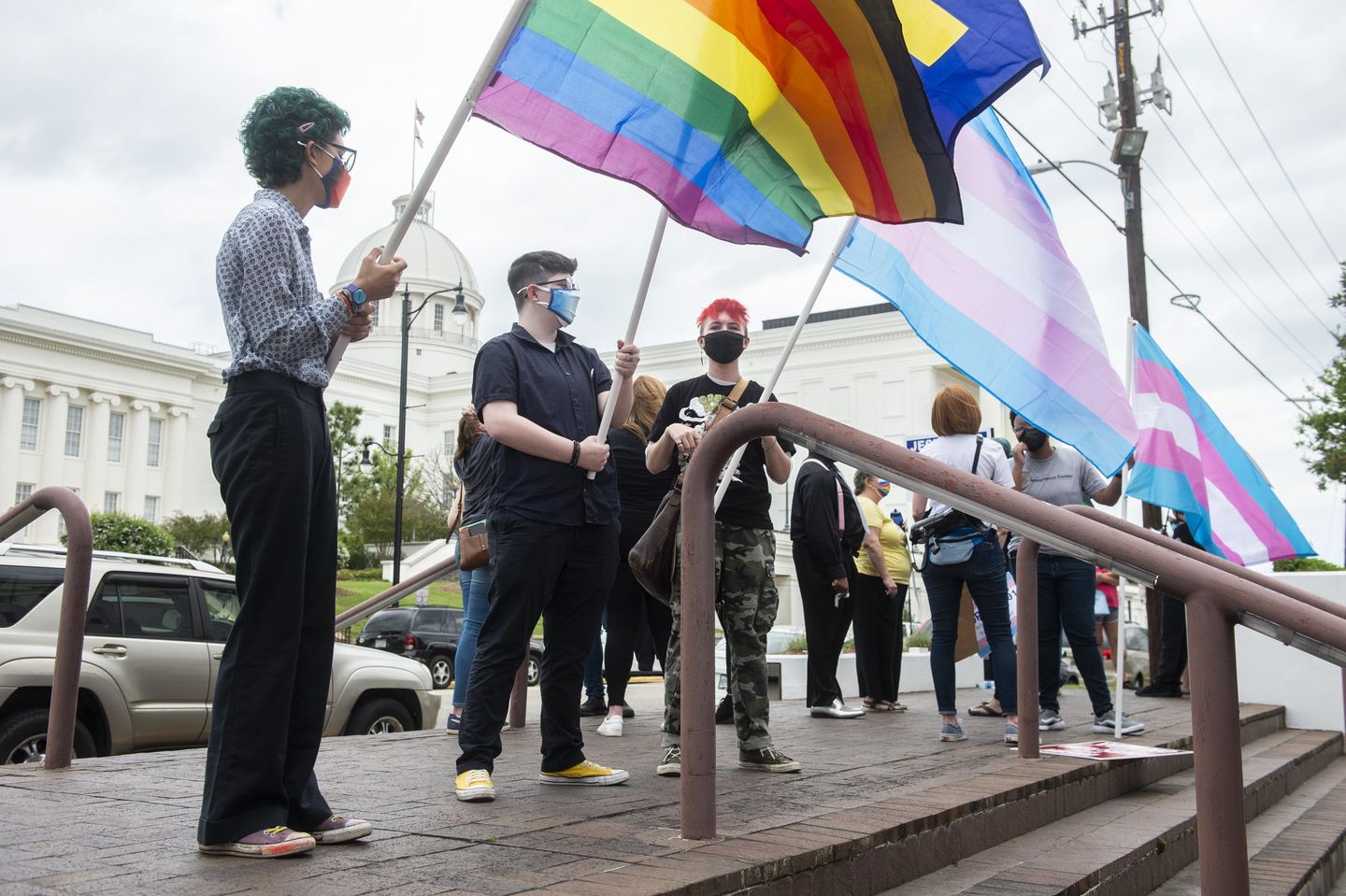No big backlash for states passing anti-transgender laws
Five states have passed laws or implemented executive orders this year limiting the ability of transgender youths to play sports or receive specific medical treatment. There’s been a vehement outcry from supporters of transgender rights – but little in the way of tangible repercussions for those states. It was a striking contrast to the fate of North Carolina a few years ago. When its Legislature passed a bill in March 2016 limiting which public restrooms transgender people could use, there was a swift and decisive backlash. The NBA and NCAA relocated events; some companies scrapped expansion plans. By March 2017, the bill’s bathroom provisions were repealed.

So far this year, there’s been nothing comparable. Not even lawsuits, although activists predict some measures will eventually be challenged in court.
Rodrigo Heng-Lehtinen, deputy executive director of the National Center for Transgender Equality, says he’s surprised by the lack of backlash but believes it will materialize as more people learn about the approved legislation.
“A lot of Americans are still getting to know trans people, and they’re learning about these issues for the first time,” he said. “Over time, they get to know their trans neighbors, they get outraged by these bans, and corporations respond … It’s just a matter of time.”
The president of significant national LGBTQ-rights organizations, Alphonso David of the Human Rights Campaign, attributed the lack of backlash to a lack of awareness about the potential harm these laws could cause transgender young people.
“Some people in this country have not come to terms with treating trans people like human beings,” David said. “It’s now coming to a head.”
One batch of bills seeks to ban transgender girls from competing on girls’ sports teams in public schools. Such measures have been enacted in Alabama, Arkansas, Tennessee, and Mississippi and implemented by an executive order from Gov. Kristi Noem in South Dakota.
Another batch of bills seeks to ban gender-affirming medical treatments for trans minors, including puberty blockers and hormone therapy. Arkansas legislators approved such a measure over the veto of Republican Gov. Asa Hutchinson, and similar actions are pending in Alabama, Tennessee, and Texas.
runs a transgender medicine clinic at Arkansas Children’s Hospital — says the ban in her state is raising the risk of suicide among some of her patients and forcing some families to wonder if they should move to another state.
More than 400 companies __ including Tesla, Pfizer, Delta Air Lines, and Amazon __ have signed on to support civil rights legislation for LGBTQ people that are moving through Congress, advocates said Tuesday.
And last week, the Human Rights Campaign took out a full-page ad in the New York Times appealing to corporations to denounce the anti-trans bills that have increased in Republican-controlled legislatures.
The letter, signed by David, urged corporate leaders “to take action now by publicly denouncing state legislation that discriminates against people, refusing to advance new business in states that are hostile to corporate values, and refusing to support sporting events where transgender athletes are banned.”
More than 85 companies have signed a statement drafted by the HRC — including Amazon, American Airlines, Apple, AT&T, Facebook, IBM, Microsoft, PepsiCo, Pfizer, and Union Pacific. The statement implies a threat in polite language: “As we make complex decisions about where to invest and grow, these issues can influence our decisions.”
Overall, the corporate response remains “insufficient,” David said. “But I think we are seeing a turning of the tide as we put more pressure on companies.”
One of the companies signing the HRC statement is the technology giant Oracle Corp., which plans to bring 8,500 jobs and a $1.2 billion investment to Nashville, Tennessee, over the coming decade. Joe Woolley, who heads the Nashville LGBT Chamber of Commerce, has expressed hope that Oracle – which has not threatened to cancel its plans – might use its leverage to prompt reconsideration of Tennessee’s anti-transgender legislation.


